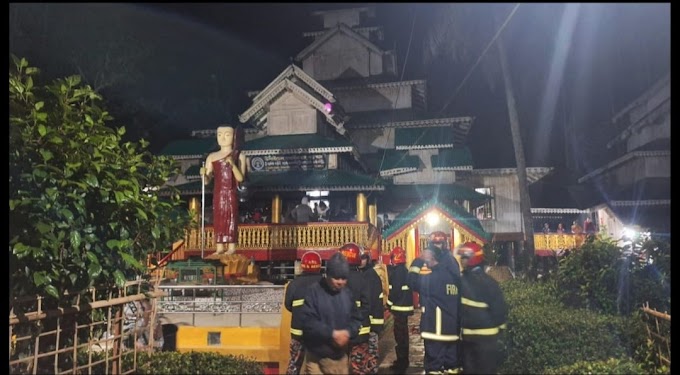Special Correspondent:
In today’s digital era, the speed of information flow is both a blessing and a threat in Bangladesh. While it enables quick communication and access to knowledge, it also allows the rapid spread of rumors and misinformation especially concerning religion.
In countries like Bangladesh, such digital rumors have sparked violence, often targeting religious minorities in the country.
Minorities as Targets of Rumors:
Over the 13 years, several violent incidents in Bangladesh were rooted in baseless rumors spread via social media.
In 2012, a fake Facebook post led to the destruction of Buddhist temples in Ramu. Similar communal violences occurred Comilla, Noakhali, Jessore, Sunamganj, Rangpur, Bhola and latest communal attacks erupted in Gangachara upazila of Rangpur on 26 and 27 July 2025 where Hindu communities faced violence based on false allegations posted online.
The Role of Social Media:
Platforms like Facebook have become prime channels for spreading misinformation. Fake accounts circulate edited or misleading content, which can go viral within minutes. The emotional and religious sensitivity of these posts often triggers mass outrage before facts can be verified. Lack of prompt action from law enforcement or digital platforms allows the misinformation to escalate into real-world consequences. It's very heartrending news that the person or groups who create fake Facebook accounts collecting anyone's picture and name and circulate hurting religious sentiments always unpunished. Whose picture and name was used in the Facebook account are always arrested instantly by the law and forcing agencies. Various kinds of print and electronic media and even the international broadcasting agencies like BBC Bangla and others reported in this matter.
What Can Be Done:
To tackle this growing menace, a multi-pronged approach is necessary.
- Public awareness campaigns to educate users about digital literacy and fact-checking.
- Strengthening legal frameworks to punish those intentionally spreading false information.
- Promoting fact-checking tools and encouraging responsible use of social platforms.
- Rapid response by law enforcement and community leaders to prevent mob violence.
Conclusion:
While the internet has transformed communication, it has also made societies vulnerable to manipulation. In a world where digital content can spark real-life violence, separating fact from fiction is no longer optional—it is essential. Vigilance, education, and accountability are key to preserving harmony in an increasingly connected world.





0 Comments